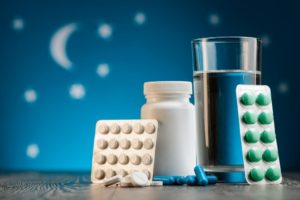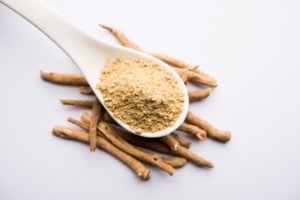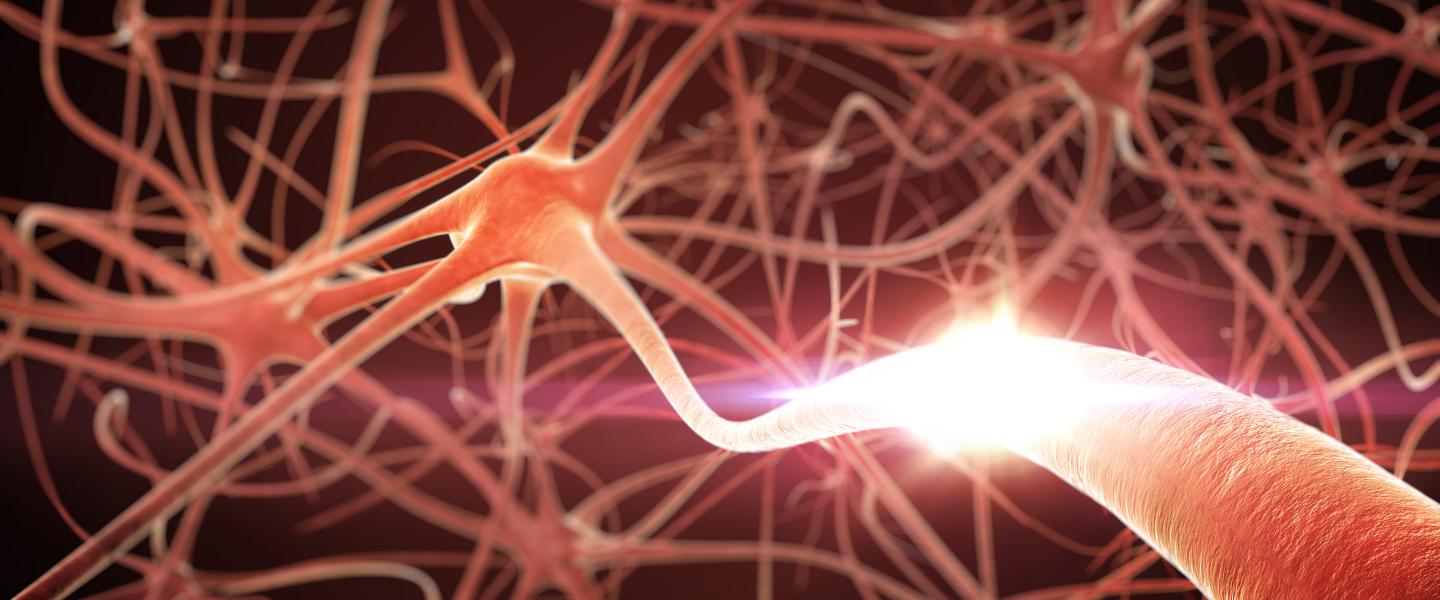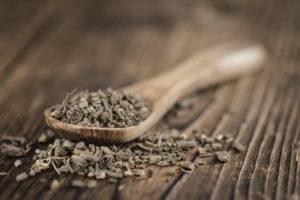Glycine for Sleep
Glycine is an amino acid that plays a range of important roles throughout the body, including in the immune system, digestion, bones and joints, and the nervous system. It is also sold as a dietary supplement, marketed as a treatment for sleep problems like insomnia.
What is Glycine?
Glycine is one of the main amino acids that form the protein collagen, a component of skin, bones, tendons, and ligaments. It is also involved in the production of proteins that are needed by the immune system and helps make other amino acids, including the genetic material of the body— RNA and DNA .
In the brain, glycine works as a neurotransmitter, affecting how chemical signals are sent in the body. Glycine also plays an important role in breaking down and using fat and fat-soluble vitamins after they are consumed.
Overall, glycine is essential for maintaining body structures, growth, and metabolism. It is commonly found in protein-rich foods such as meat, fish, beans, peas, lentils, and dairy. Most people consume about three to five grams of glycine per day from food. While small deficiencies of glycine are not dangerous, larger deficiencies may affect a person’s health.
Does Glycine Help Sleep?
As a dietary supplement, glycine is often promoted as a cure for insomnia. However, there is not much evidence to back up this claim. Three small human studies suggest that glycine may hold promise as a sleep aid.
In evaluating research studies, experts advise people to consider the size of the study and who conducted and paid for the study, among other things. In the human studies on glycine supplements, the researchers included people who work for a company that manufactures glycine supplements and the number of subjects in the studies was small.
How Could Glycine Help Sleep?
Although it’s not yet clear if glycine supplements help people sleep, scientists have conducted several animal studies to determine how glycine may affect sleep.
- Lowers body temperature: In rats, glycine appears to reduce core body temperature. This is important because the body starts to cool off as people fall asleep and body temperature continues to decrease for about two hours after falling asleep. A decrease in core body temperature may also be related to melatonin, a hormone that promotes sleep.
- Increases serotonin: Rats that are given glycine also appear to have an increased amount of serotonin in the brain, which researchers believe may help with insomnia . Serotonin is a neurotransmitter that is involved in sleep regulation.
Is Glycine Safe?
Glycine, like all dietary supplements, does not undergo the testing that is required for prescription and non-prescription medications. This means that manufacturers do not have to prove that glycine is safe before selling it to consumers.
In human research studies on glycine and sleep, a 3 gram dose of glycine did not cause any side effects . Amounts as high as 31 grams and 0.8 grams per kilogram of body weight have been studied for safety. High doses of glycine may cause nausea.
However, it is important to note that excessive amounts of glycine can be toxic, so anyone considering taking a glycine supplement should first check with a health care provider.
References
8 Sources
-
Razak, M. A., Begum, P. S., Viswanath, B., & Rajagopal, S. (2017). Multifarious Beneficial Effect of Nonessential Amino Acid, Glycine: A Review. Oxidative medicine and cellular longevity, 2017, 1716701.
https://pubmed.ncbi.nlm.nih.gov/28337245/ -
National Center for Biotechnology Information (2023). PubChem Compound Summary for CID 750, Glycine., Retrieved July 14, 2023 from
https://pubchem.ncbi.nlm.nih.gov/compound/Glycine -
Neubauer, D. (2023, May 24). Pharmacotherapy for insomnia in adults. In R. Benca & J. Elmore (Ed.). UpToDate., Retrieved May 30, 2023, from
https://www.uptodate.com/contents/pharmacotherapy-for-insomnia-in-adults -
Bannai, M., Kawai, N., Ono, K., Nakahara, K., & Murakami, N. (2012). The effects of glycine on subjective daytime performance in partially sleep-restricted healthy volunteers. Frontiers in Neurology, 3, 61.
https://pubmed.ncbi.nlm.nih.gov/22529837/ -
Bannai, M., Kawai, N., Nagao, K., Nakano, S., Matsuzawa, D., & Shimizu, E. (2011). Oral administration of glycine increases extracellular serotonin but not dopamine in the prefrontal cortex of rats. Psychiatry and clinical neurosciences, 65(2), 142–149.
https://pubmed.ncbi.nlm.nih.gov/21414089/ -
Inagawa, K., Hiraoka, T., Kohda, T., Yamadera, W., & Takahashi, M. (2006). Subjective effects of glycine ingestion before bedtime on sleep quality. Sleep and Biological Rhythms, 4(1)
https://onlinelibrary.wiley.com/doi/abs/10.1111/j.1479-8425.2006.00193.x -
Garlick P. J. (2004). The nature of human hazards associated with excessive intake of amino acids. The Journal of nutrition, 134(6 Suppl), 1633S–1672S.
https://pubmed.ncbi.nlm.nih.gov/15173443/ -
De Bartolomeis, A., Manchia, M., Marmo, F., Vellucci, L., Iasevoli, F., & Barone, A. (2020). Glycine Signaling in the Framework of Dopamine-Glutamate Interaction and Postsynaptic Density. Implications for Treatment-Resistant Schizophrenia. Frontiers in psychiatry, 11, 369.
https://pubmed.ncbi.nlm.nih.gov/32477178/





















